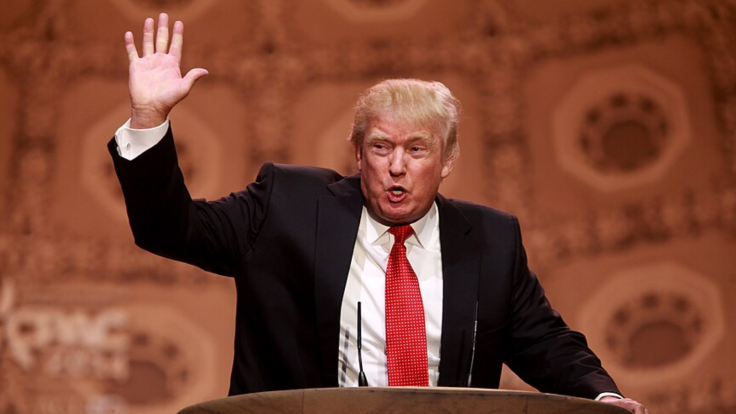Trump Slammed As 'Deluded And Dementia-Riddled' Amid BBC Battle
BBC apologises for editing Trump's speech as leadership resignations follow

Donald Trump's latest clash with the BBC has erupted into an international media storm, with commentators branding him 'deluded' and 'dementia-riddled' while he threatens to pursue legal action worth up to 5 billion dollars.
What began as a single Panorama editing error has now escalated into a transatlantic battle over journalistic integrity, political manipulation and Trump's increasingly aggressive campaign to claim victimhood at the hands of global news organisations.
The crisis has not only forced the BBC to apologise but has reignited fierce debate about media accountability, legal limits and Trump's own mental fitness, with the fallout widening by the day.
Trump Threatens Lawsuit as BBC Admits Error
The controversy centres on a Panorama documentary, Trump: A Second Chance?, aired in October 2024, which spliced together two parts of Trump's January 6 rally speech — about 50 minutes apart — to make it appear as though he called for violent action.
On 13 November 2025, the BBC issued a public apology, admitting that it 'created a misleading impression' and calling the edit an 'error of judgement'. The broadcaster confirmed it will not rebroadcast the episode.
Trump responded by threatening to sue, seeking between 1 billion and 5 billion dollars in damages. He told reporters he was 'looking at legal action' and floated filing a claim 'possibly next week'.
His lawyer, Alejandro Brito, demanded a retraction, apology and compensation, accusing the BBC of 'false, defamatory, disparaging and inflammatory' conduct.
However, no lawsuit has yet been filed in a UK court. Legal experts warn that Trump may face major hurdles in the UK, including tight deadlines for defamation claims and much lower damages than in US litigation.
Some speculators suggest his legal team may instead sue under Florida law.
BBC Leadership Shaken by Resignations Over Trump Edit
The crisis has dealt a huge blow to BBC leadership. Director-General Tim Davie has resigned, announcing that he is stepping down after 'very intense personal and professional demands' and acknowledging he must take 'ultimate responsibility' for the broadcaster's mistakes.
At the same time, Deborah Turness, CEO of BBC News, also announced her resignation. She said the controversy around the Panorama edit had 'reached a stage where it is causing damage to the BBC — an institution that I love'.
Critics say the departures reflect a broader reckoning at the BBC over editorial standards and political impartiality.
Al Jazeera reports that the resignations followed a scathing internal memo from Michael Prescott, a former BBC standards adviser, who accused the broadcaster of systemic bias, including in its Trump coverage.
Fallout and Political Reactions
Trump's allies argue the Panorama edit is proof of institutional hostility and media bias. Opponents counter that he is weaponising the incident to claim victimhood. In US media and on social platforms, some commentators have used harsh rhetoric, describing him as 'deluded' and 'dementia-riddled', reviving debate over his cognitive fitness.
Meanwhile, the BBC finds itself under scrutiny from within and outside. Former Director-General Tony Hall has warned that licence-fee payers should not be forced to foot a potential legal bill.
Defamation experts, for their part, argue that Trump's case will be difficult unless he can prove not just editorial error, but malice or recklessness — a claim the BBC disputes.
As this row intensifies, what began as an editorial misjudgement has become a battleground over credibility, accountability and the limits of political and media power.
© Copyright IBTimes 2025. All rights reserved.





















